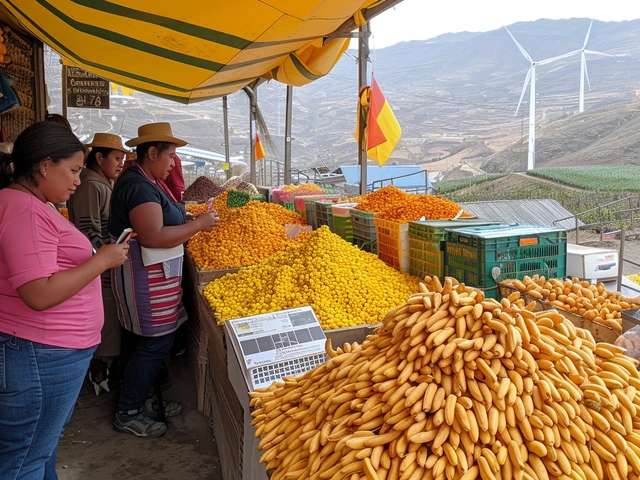Rich Ethiopians: Real Stories, Salaries, and How Wealth is Built
Ever wonder how people actually get rich in Ethiopia? The answer isn’t as mysterious as you might think. From bold entrepreneurs to savvy investors, the country’s top earners often have stories packed with hustle, practical moves, and a good understanding of where money flows.
Start by looking at the booming sectors. Agriculture still sits at the core of Ethiopia’s growth story, but it’s not just about farming. The biggest fortunes often come from reinventing agricultural processes—think new export crops or big processing plants that meet growing demand. Construction, transport, and tech are turning regular folks into business leaders and millionaires. You’ll spot Ethiopia’s wealthiest tied to multiple sectors, owning parts of banks, factories, and even telecom ventures.
The government’s push to modernize the economy opened new doors—privatization and foreign investment changed the game. Locals with an eye for the right moment and outsiders with capital have both ridden this wave. Want facts? People who built construction companies during Addis Ababa’s building boom, or who took risks in coffee exports when global prices surged, have watched their accounts swell.
But is it just about owning a company? Not always. Professional salaries matter too, especially in rare skills. Engineers, banking professionals, pharmacists, and tech experts snag higher-than-average paychecks. Those who climb in industries like telecom or finance often reach income levels that make a noticeable difference in their lifestyle versus the average Ethiopian worker.
The wealth gap remains real, though. While a handful strike it rich, most workers still deal with modest salaries. The richest person in Ethiopia? It’s no secret: business moguls with stakes in everything from hotels to agriculture take the top spot. Yet, there’s a growing group of new millionaires—people who started small and used digital platforms, e-commerce, or practical investment tips to scale up.
If you’re eyeing these opportunities for yourself, get ready for some groundwork. Successful entrepreneurs in Ethiopia often share a few habits: they spot trends early, aren’t afraid to pivot, and build networks across multiple industries. The most profitable opportunities right now? Look at manufacturing, agribusiness, and tech—but only if you genuinely understand local customer needs and regulatory hoops.
Thinking about investment? Ethiopia’s investment climate has risks—you need the right paperwork and a feel for shifting policies. But the upside means you can grow small capital into something bigger, especially if you bring in new ideas to under-served markets.
It’s not just about money. The wealthiest Ethiopians also give back, funding schools or affordable housing. Their stories show what’s possible with focus, patience, and a clear sense of where Ethiopia’s economy is headed next.
Curious who really leads the pack or how much money you need to make it? Ditch the myths. Instead, check out concrete examples—whether it’s a pharmacist’s salary, what it costs to rent in Addis Ababa, or how online hustlers earn dollars from abroad. That’s where you see the real picture: wealth in Ethiopia is changing, and new paths keep opening up.





